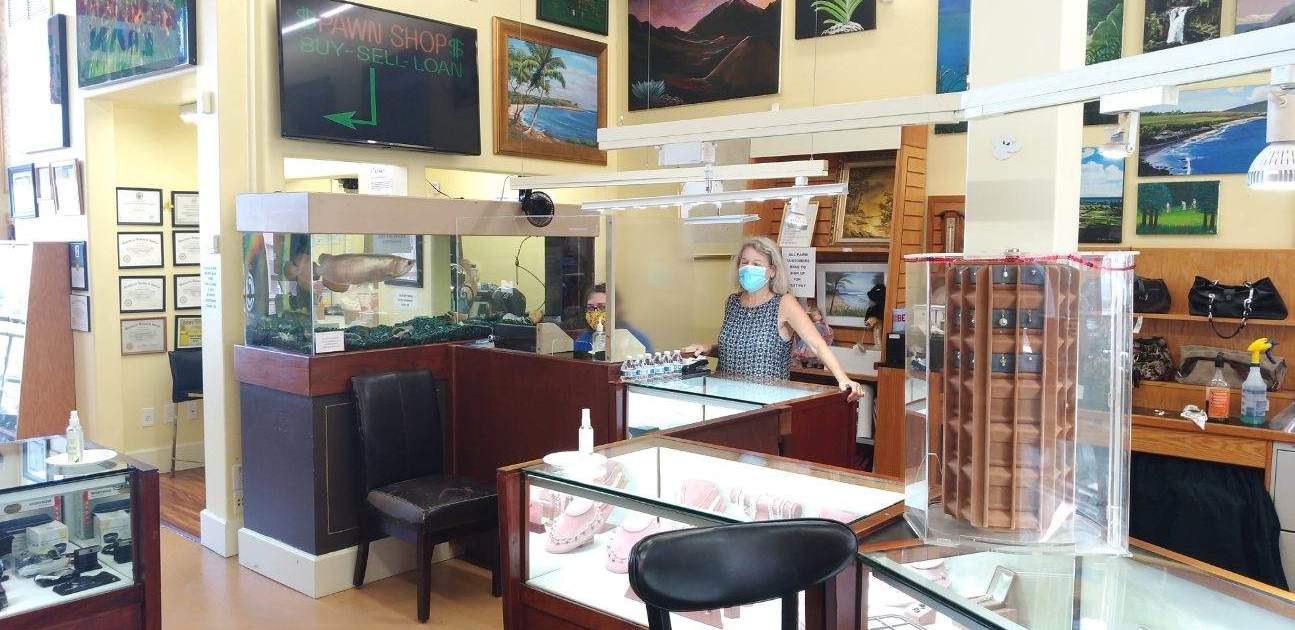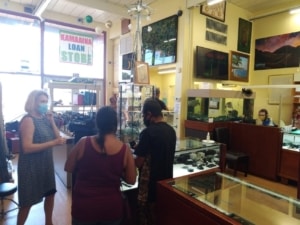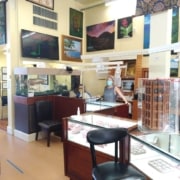Now’s the time to pick up that hobby you’ve been putting off.
 With this “new normal” in our adjusted lifestyle, you may find yourself with a little extra time on your hands. Now’s the time to start that new hobby you have put off starting. While everyone is spending more time at home, you may feel you could use another electronic device, if so, stop in and visit us. We have a selection of musical instruments such as guitars and a variety of ukulele. We also have electronics such as amplifiers available for sale too, so everyone in your neighborhood can enjoy your new found talent. If you need an extra device, we have iPads and laptops available too.
With this “new normal” in our adjusted lifestyle, you may find yourself with a little extra time on your hands. Now’s the time to start that new hobby you have put off starting. While everyone is spending more time at home, you may feel you could use another electronic device, if so, stop in and visit us. We have a selection of musical instruments such as guitars and a variety of ukulele. We also have electronics such as amplifiers available for sale too, so everyone in your neighborhood can enjoy your new found talent. If you need an extra device, we have iPads and laptops available too.
For those who enjoy their extra time outdoors, living in Hawaii has its benefits where we can enjoy the warm tropical breeze and sunshine all year round. If you are looking for a fun way to get out yet respecting the social distancing, we can help with that too. We also have golf clubs, fishing equipment and other outdoor sports equipment available for sale.
In case you were wondering, yes, we are open for business during this time and we have taken extra precautions to make sure you are safe while shopping with us.

For the safety of our staff and other customers, we ask that you remember to wear your mask when you visit us. If you do not have a mask, we have some disposable ones available. We have also taken extra precautions while you shop by having hand sanitizers available throughout our stores. Additionally, every couple of hours we disinfect the entire store. Plexiglass shields have been installed on our counters to keep our customers and our sales team safe when interfacing with each other and completing a sale.
If you are planning to stop in and shop, Kamaaina Loan is open on Market Street in Wailuku from 9 am to 6 pm Monday – Friday and from 10 am to 4 pm on Saturday. We are closed on Sunday. You can also shop with us online. We will be happy to hook you up with something to keep you happy.
#maui #mauiretail








